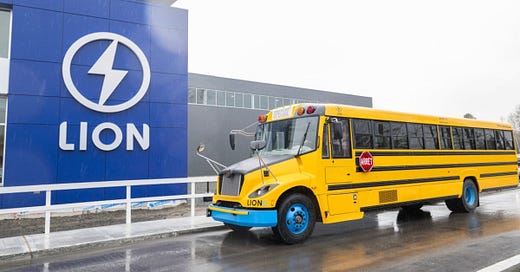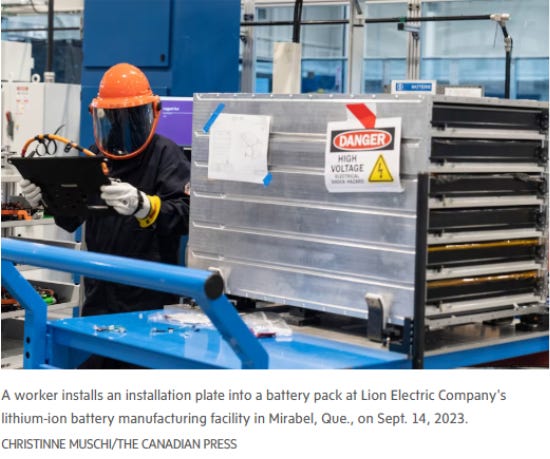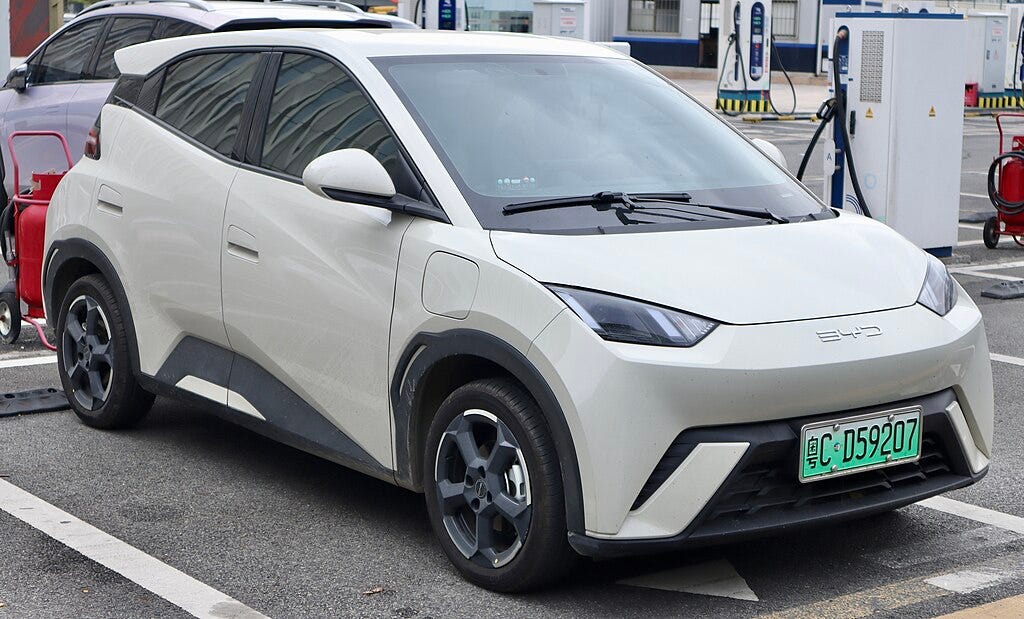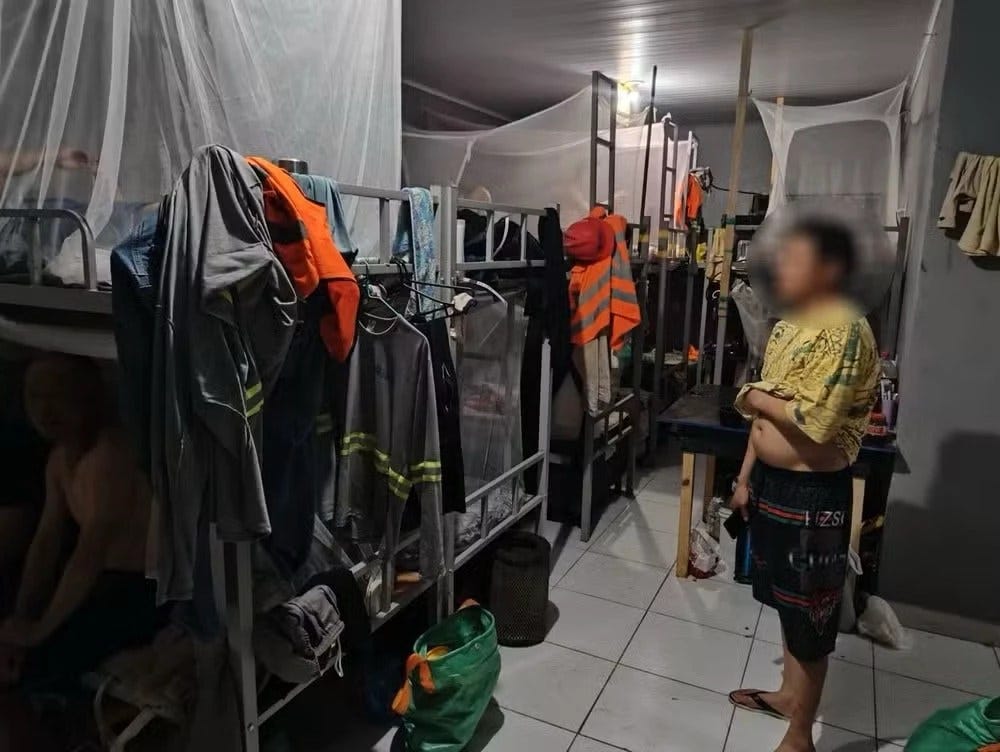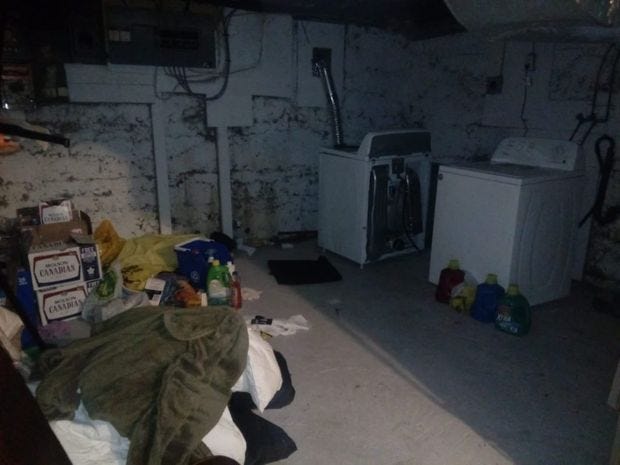EV production in China
Last week I read a few different pieces about EV production. First I read JS Tan's piece on Chinese EV industry and the price competition taking place between firms that was in part induced by the structure of industrial policy supports. For context, China is often labelled as dominating the EV market, and for good reason. According to the China Association of Automobile Manufacturers, China produced and sold 31.282 million vehicles in 2024, 5.859 million of those being exports. Exports increased by 19.3% from the previous year, showing the growing hunger for EVs. China is estimated to account for 58% of global EV production.
Back to Tan’s piece, it covered the Chinese EV industry and price competition taking place between firms caused in part by the structure of industrial policy supports. It brought to the forefront the realities of cutthroat competition that has brought the net profit per car to relatively low for these companies. As Tan points out:
In 2022, China's top EV maker, BYD, only had an average net profit per car of $1,550. Xpeng and Nio, two other top EV makers in China, had negative net profits per car of $11,735 and $19,141. By contrast, Tesla reported a net profit of $9,574 per car.
To make matters more complicated, a big reason for this situation is the relatively decentralized distribution of state support, which has led to competition between regions within China and support for firms that aren't necessarily the most productive.
Counter to the narrative that China simply seeks to lower the value of its products to engage in harsh price competition with the West, the state is in fact trying to stop this race to the bottom, which is causing harm to the overall sector. In short, it's important to note that while China is likely dominant in export capacity and technology, its own market is not without contradictions.
This piece got me thinking about the future of the EV industry in Canada. Recently, the Quebec electric bus and truck producer Lion Electric has been in recent financial struggles Lion Electric is one of major player in the electric school bus market in Canada and the U.S., with 2,200 electric vehicles on the road and 33% of the market share across North American.
The company grew in the first half of the decade, reaching a market cap of US$4.2 billion in 2021, leading to a hiring of 1,400 employees the next year. But with falling demand and difficulties raising capital, the company become unable to access credit. In December they entered credit protection after rounds of layoffs and shutting down their Joliet plant. According to the Financial Post in January the company owed 500 million dollars USD, and a recent BNN report state they owe more than US$244 million to secured and non-secured creditors.
To make matters worse, this week they were refused funding from the provincial government to save the business. The provincial government already lost 177 million CAD and the federal 30 million CAD. The Economy Minister Christine Frechette state:
“We believed in Lion’s potential, but the recovery plan submitted did not justify the re-injection of significant government sums...Unfortunately, it’s clear that providing Lion with additional funding would not be a responsible decision.
The company filed for credit protection when being unable to pay off its debts or fund another buyer for the business or its assets. While there continues to be negotiations with Quebec and U.S. groups, there remains to be a deal struck. The company is likely to be sold in parts, but in the meantime thousands in the U.S and Canada are left without maintenance services.
As of Monday May 1st, a court-appointment monitor for the company stakes the company is likely to be liquidated because the government refused to provide more funds. A Deloitte representative stated in court that government aid would have been a condition for the company’s sale. After last weeks announcement, the company laid off all but 12 employees.
A paper tiger: Canadian EV industry
This situation got me thinking about the state of EVs in Canada. Canada, U.S. and Mexico jointly produce nearly 700k electric vehicles a year. Auto trade counts for a quarter of regional trade in 2024 representing 22%. It's the single largest component of intra-north American trade. The broader industry produces around 40 million jobs in North America.
Unfortunately for Canada, Lion is not an outlier but part of the broader crisis within the Canadian EV sector. Major hurdles facing the Canadian EV industry by past and recent piece highlighted which :
Affordability: The average cost of a fully electric car is 70,297, and the national average income is 57,100, thus there's a shortfall in effective demand.
Infrastructure Gaps: Most EV owners rely on home charging, but widespread networks are required. Canada has more than 37,000 public charging ports but require 679,000. We need 40kis per year.
Policy uncertainty and tariffs: There's little policy certainty from Trump, and Canada exports 91% of its parts to the US.
Canada's been pushing state-support for various projects by injecting billions, including a battery pant in St. Thomas Ontario, Windsor and an expansion of Honda's Alliston, Ontario plant to make EVs.
It's seeming more and more like the current configuration of private markets won't cut it. Not for the wallets of individual, corporations or to resolve the climate crises. There's an attempt to build a competitive EV industry in Canada, but the question that's been on my mind is, why?
Does anyone in Canada seriously think that we could build a competitive EV industry? There's been recent buzz because of a study last year that stated “Canada is currently #1 in battery supply chains”. You can see citations of this everywhere in the Canadian press, and while I haven't read the report, I feel safe in assuming something is being overhyped here. China, for all practical purposes, is on top. Even in the article, the authors of the report state:
That doesn’t mean that Canada is better overall than China: What we’re saying is that within the lens of 2023, Canada performed better than China
Funnily enough, the 2024 article about this from the Globe and Mail uses a picture from Lion Electric's factory.
This brings me to the real issue that the initial Globe and Mail piece simply ignores: China. In other words, this is the biggest hurdle for a successful EV industry rise globally. Why are we going to support an industry that can't be globally competitive?
If Canada won’t say, make EVs a public service that is produce outside of profit mechanism, there's no way out of this question. The only possible way EVs can remain a capitalist endeavour and last is with high barriers to entry for competitors. But Canadian capitalists want to stay in the global economy, they want an open economy.
Canada first imposed a 25% tariff on Chinese steel and aluminium products and then placed a 100% tariff on imports of Chinese-made EVs. This includes cars, buses, trucks and delivery vehicles, some of which are hybrids. But how long can that last? Look at one of China's cheapest EVs, which sells for around 12,000 CAD in the U.S (although there's questions about the exact cost).
Does anyone believe that Canadian producers will be able to compete with this? I will go further. If we polled Canadians right now, I’m sure more than 50% would say they’d prefer cheap EVs to the ongoing trade war. If there was a $CAD 10,000-15,000 EV available here, you’d bet a lot more people would be buying.
Now let’s not go too far in praising China for this ‘miracle’ of low costs. It’s clear that their success also involves the exploitation of labor. In 2024, Brazil inspectors found that the conditions in a construction site for a new BYD factory contained what they called slavery like conditions. The story is still developing, with BYD and outsourcing companies rejecting many of the allegations, including that the employment contracts included abusive clauses.
Considering that Canada’s EV sector is heavily unionized, and construction less so, there’s little chance we’d ever be able to see a rate of exploitation that high. It’s important to note that grueling labor conditions such as these are not unique to Chinese businesses. When I saw these images I was immediatelyreminded of the conditions of migrant farm workers in Ontario who were similarly in conditions which the UN referred to as modern slavery. Similarly, there would be small spaces in which 20-30 people would live in cramped unsanitary conditions.
Tensions between EV production and climate policy
The tariffs are also deeply contradictory with Canada’s climate goals. Canada's Zero-Emissions sales target wants to have 100% zero-emission vehicle sales by 2035. There's no way at this rate that's gonna happen, given the lack of supply and infrastructure domestically.
Cheaper acess to EVs would also help deal with inflation, and lower the pressure to increase wages within the Canadian market. I’m not suggesting this is a good set of policies, I think public transit and not individual EVs is the solution. However, I’m trying to highlight how neo-cold war policies are getting in the way of current attempts of greening the car industry in Canada.
The goals of a green transition, imperial foreign policy, and industrial manufacturing are all facing off. What's best for the consumer is being put aside in favour of support global western power and domestic Canadian manufacturing.
But in practice, the long term pain caused by supporting these uncompetitive industries is going to hurt more people than it helps. It feels like all these policy structures aimed at creating an EV sector in Canada are simply doomed to fail. The governments and unions are herding workers and consumers off a cliff.
Simply put, when it comes to the idea that we're going to have tariffs and achieve our climate targets on EVs, the math is simply not mathing. China is responsible for 55% of the total battery power for vehicles. In July, more than half of all vehicles sold were EVs and plugin-hybrids. As one commentator puts it, Canada is essential is a bind:
"If your goal is only to electrify the vehicle car park, then don't put in tariffs on imports...[but]...if you completely open the gates to China, then you will never make a dent in their dominance."
The only solution would be to have collective production of EVs. The state would provide the financing to access domestic resourcs. Industries should be a blend of nationalization and cooperatization, insuring that battery production could be pursued in the interest of the population rather than profit. But in Canada, that’s a pipe dream.

